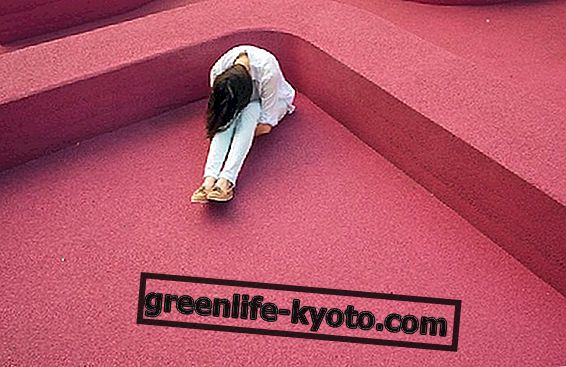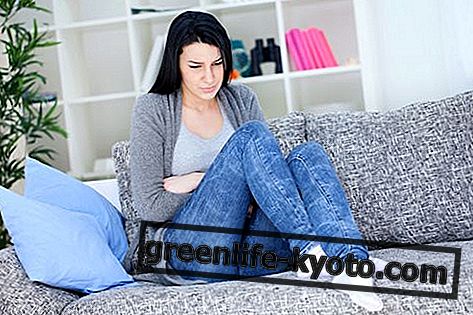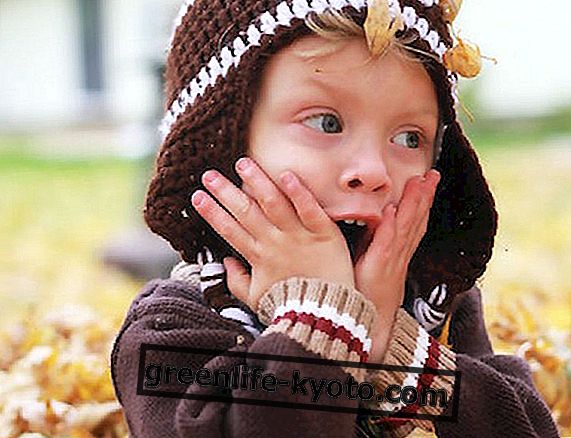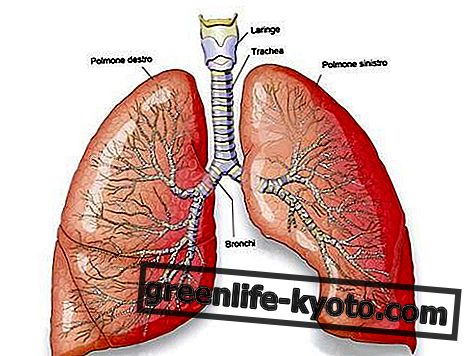
Anxiety is in itself a positive subjective experience: it signals a person in fact a phenomenon or event that can jeopardize his safety.
Anxiety is therefore an adaptive, defensive physiological state that allows us to better assess the situation and plan attack or flight strategies against the threatening stimulus.
Anxiety in general is not negative therefore. However, sometimes anxiety states can become chronic: let's see what the relationship with stress involves and what it consists of
Chronic anxiety
Clinical anxiety, prolonged over time, shows an abnormal reaction with respect to situations; in these cases, the intervention of a specialist is necessary, especially when the levels of clinical (chronic) anxiety compromise the daily functioning of the individual on various levels (emotional, affective, cognitive, working, etc.).
Clinical anxiety shows the same physiological, cognitive and behavioral responses to acute stress, with the difference that while the latter tends to regress, clinical anxiety has a greater duration and intensity to the point of invalidating the life of the person who suffers .
From these first considerations, it is possible to note the continuum existing between physiological anxiety and pathological anxiety.
A stress condition is characterized by many anxiety crises that can be defined as a symptom of stress (Cassidy, 2002).
Generalized anxiety, what it is and how it manifests itself
What is stress?
Seyle argued already in 1956 that stress was an adaptive response from the organism, which then favored adaptation to the environment (general adaptation syndrome).
The general adaptation syndrome consists of several phases:
- the alarm phase in which physiological reactions take place, such as the activation of the hypothalamic-pituitary-corticosurrene axis with the consequent release of hormones (cortisone);
- the resistance phase, in which the organism organizes itself for a functional reaction;
- the phase of exhaustion, in which the collapse of the defenses and the inability to adapt to further stressors (stressing agents) occurs.
Basically stress is a physiological, adaptive and non-specific reaction as they are changes in the body especially at the endocrine level in response to a wide range of heterogeneous stimuli (stressors).
It goes without saying that this response of the organism is not a pathological condition in itself, rather it is adaptive. However, the reaction can become pathogenic if the stressor is particularly intense or if it lasts for particularly long periods.
The so-called acute stress, what we have in the immediate psychophysical reaction of our body in front of a stressful event that allows us to initiate an attack or flight response, is therefore beneficial. What is serious about health is when acute stress becomes chronic .
Clinical anxiety and chronic stress
Chronic stress occurs when the organism is no longer able to return to the baseline (starting) condition, ie the effects of stressful events do not end, but remain.
The organism continues to receive uninterrupted signs of danger and alarm, when these actually no longer exist.
It may also happen that the body is unable to handle even mild stressful events, running the risk of facing various types of diseases that are the expression of a discomfort that the body has experienced at various levels (cognitive, emotional and physiological) for an extended period.
For this it is necessary to consider the person in a holistic way, not only managing stress, but taking care of it in its entirety .
It is therefore important to understand the limit between "normality" and pathology. We must train ourselves to trace the consequences of negative emotions.
Many consider anxiety as wrong in itself and would like not to try it. As we have seen, this is not the case: anxiety in certain doses is useful and useful, as an adaptive response and it is necessary to understand when instead it becomes maladaptive and in that case to resort to the help of a specialist.
Pay attention to how negative emotions affect your quality of life: do they prevent you from going to work? To leave home? To express yourself, to realize yourself? If you feel that the anxiety you feel is continuous over time and prevents you from living a qualitatively positive life, consider asking for support from a specialist.
Finally a thought, by Seyle (1951):
"Complete freedom from stress is death. Contrary to popular belief, we must not, and really cannot, avoid stress, but we can meet it effectively, and take advantage of it by learning more about its mechanisms and adapting our philosophy of existence to it ".













